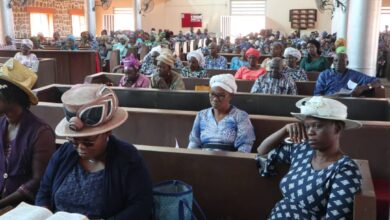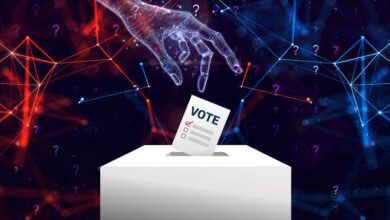The Role of AI-Integrated SMS Platforms/Website Interfaces in Fact-Checking for Election Integrity

By Ajibola Osungbohun
Introduction
Misinformation and disinformation threaten election integrity and democratic processes. Traditional fact-checking methods often struggle to keep pace with the rapid spread of false information, especially in regions with limited internet access. However, integrating Artificial Intelligence (AI) into SMS platforms presents a promising solution for delivering real-time, fact-checked information directly to voters.
AI systems can analyse vast datasets, detect misinformation, and generate accurate responses swiftly. In the U.S., the Electronic Registration Information Center (ERIC) already uses AI-driven tools to manage voter data and prevent duplicate registrations. Similarly, AI technologies can enhance electoral transparency by detecting false claims and providing verified information to voters. This approach is especially valuable in developing countries like Nigeria, where internet penetration is low, but mobile phone usage is widespread.
AI-integrated SMS platforms can bridge the gap by delivering fact-checked information via text messages, making reliable data accessible to a broader audience. These platforms offer real-time corrections to viral misinformation, helping to counteract the influence of false narratives on voter behaviour. However, challenges remain. AI systems can be vulnerable to biases and manipulation, potentially spreading skewed information. AI-driven misinformation campaigns could erode public trust in electoral processes if not properly regulated.
Despite these risks, AI tools, when used responsibly, can strengthen democracy by enhancing voter awareness and confidence. By addressing the spread of misinformation through accessible SMS-based solutions, AI can play a pivotal role in safeguarding election integrity. However, further research is needed to evaluate the effectiveness of these platforms, especially in regions with low digital literacy. Investing in AI-integrated fact-checking tools offers a critical opportunity to protect democratic processes and promote informed voter participation.
How Important Are the AI-Integrated SMS Platforms / Web Interfaces in Curbing Misinformation and Disinformation
Misinformation during elections poses a significant threat to democracy, particularly in developing countries like Nigeria, where access to real-time fact-checking tools is limited. Traditional fact-checking methods are often too slow, allowing false information to influence voters. AI-integrated SMS platforms offer a promising solution by rapidly disseminating fact-checked information. This research aims to assess the effectiveness of these platforms in improving election-related information, and community awareness, and their role in reducing misinformation. An online survey was conducted with 53 respondents to explore the impact and adoption of AI-powered SMS platforms in local communities.
Finding and Interpretation of the Survey
The study analysed public awareness and perceptions regarding the use of AI-integrated SMS platforms/Website interfaces to combat election-related misinformation. The survey was structured into five sections: respondent demographics, understanding of election misinformation, awareness of AI tools, effectiveness of AI in fact-checking, and community engagement. The majority of respondents were aged 25-34, with most having participated in elections. Notably, 75.5% were unaware of AI-powered SMS platforms for fact-checking, though 68% expressed willingness to use such a service. Respondents showed strong confidence in AI’s ability to improve election integrity, with 69.8% believing that AI-based platforms could enhance transparency. Additionally, 77.4% would recommend these platforms to others. The findings highlight the potential for AI-driven SMS tools to reduce election misinformation, although increased awareness and trust-building are necessary for broader adoption.
Furthermore, The study highlights the potential of AI-integrated SMS platforms/Website Interfaces in combating misinformation during elections, with strong public support for their role in reducing false election-related information. 84.9% of respondents believed these platforms could effectively curb misinformation, emphasising the need for accurate, real-time information, especially in regions with limited internet access. The study stresses that AI-powered systems can quickly process vast amounts of data, supporting informed voting decisions. However, the lack of awareness about these platforms remains a challenge, with 75.5% of respondents unfamiliar with them.
Conclusion
As this study provides the solution to reach out to more people, most especially the underserved communities in Nigeria it is important to add user-friendliness to the SMS platforms, focusing on accessibility, and ensuring compatibility with basic mobile devices. Additionally, public awareness campaigns, accuracy in information delivery, and partnerships with local organisations are crucial for widespread adoption. These platforms can play a key role in improving election transparency and integrity by prioritising simplicity, regional languages, and user feedback.




